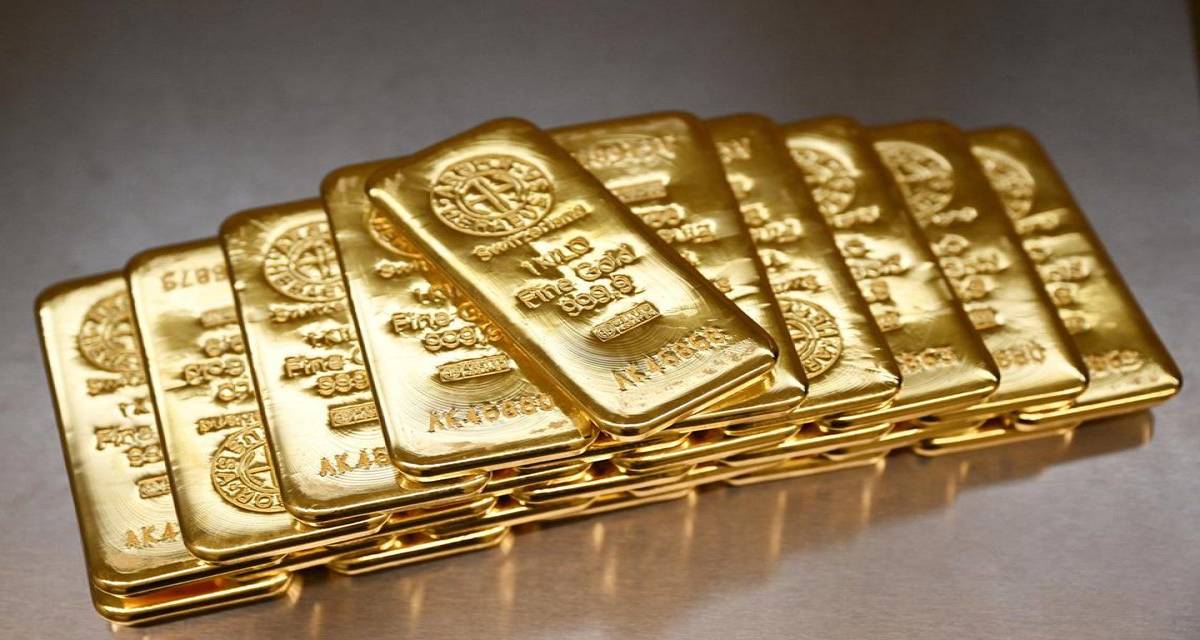772 Views
Trump’s Fed Meddling Exposes Germany’s Gold as a Geopolitical Hostage
Germany’s gold reserves in New York—a legacy of post-WWII financial order and trust in U.S. leadership—have now become a symbol of geopolitical tensions amid the shift toward a multipolar world. Recent remarks by Donald Trump about potentially interfering with Federal Reserve policies have not only undermined confidence in the Fed’s role as a trusted custodian of global reserves but also sounded an alarm for Europe’s financial dependence on American infrastructure. These developments raise fundamental questions about the future of transatlantic financial trust and the balance of power in the international system, potentially serving as a warning for global markets and the world economy.
Germany’s 3,352-ton gold reserves, one-third of which are stored in the Federal Reserve’s vaults in New York, reflect the interdependence of major economies on U.S. financial infrastructure. Originally rooted in Cold War-era liquidity needs, these arrangements have now turned sensitive due to America’s political instability. Germany’s 2013 decision to begin repatriating 374 tons of gold from Paris and 300 tons from New York was an early sign of eroding trust in the old system. Now, Trump’s comments about influencing the Fed raise a critical question: Could Germany’s gold in New York become a tool for geopolitical leverage? The U.S.’s shifting approach to trade and alliances has become a serious challenge for both its partners and the global financial system.
Moreover, storing national gold reserves abroad—especially in a politically volatile country like the U.S. under Trump—carries significant risks. The possibility of these reserves being weaponized in geopolitical disputes is a growing concern. Trump’s unpredictable policies, including his attacks on the Fed and trade wars with allies, have heightened fears of vulnerability, pushing Germany’s gold dilemma toward a critical juncture. What was once a strategic advantage (quick access to dollar liquidity) now threatens financial stability, as political turbulence could turn these assets into tools for coercion—or even economic hostage-taking—undermining Euro-American financial trust.
While the Federal Reserve operates independently, Trump’s threats to remove Jerome Powell as chair and his critiques of monetary policy have injected instability into the heart of America’s financial system. This contradiction—between the U.S.’s traditional role as guardian of global reserves and its president’s erratic policies—has shaken allies like Germany.
Meanwhile, the decline of the U.S.-led liberal order is pushing nations to rethink reserve strategies. Reports from leading financial institutions suggest that "distrust in the dollar" could elevate the euro’s role as an alternative reserve currency. Germany, with 74% of its foreign reserves in gold, is at the forefront of this shift—aligned with the BRICS expansion and the Global South’s de-dollarization trend. Repatriating gold from the Fed is thus not just symbolic but a step toward financial sovereignty in a multipolar era.
Though the Bundesbank claims the repatriation is merely a "logistical optimization," evidence points to geopolitical motives and fears of instability. Transferring the remaining 1,236 tons from New York—equivalent to 40,000 bars—would require military-scale security operations. This costly, complex process could strain transatlantic relations and trigger a wave of similar withdrawals, imposing heavy costs on the U.S.
In sum, Trump’s rhetoric and America’s policy instability have placed the dollar-based financial order under unprecedented pressure. For Germany and Europe, continued reliance on U.S. financial infrastructure—while Washington wields economic tools as weapons—is a growing risk. Repatriating gold, though expensive, could lay the foundation for an independent European financial system, where the euro serves not as a dollar rival but as a pillar of a new, multipolar order.
Ultimately, these shifts show that Europe, to survive in a changing world, must reduce dependence on America and redefine itself as an autonomous player. Germany’s gold in New York has transformed from a symbol of cooperation to a sign of geopolitical rupture—one that only greater European unity and self-reliance can mend.
*Translated by Ashraf Hemmati from the original Persian article written by Amin Mahdavi

Comment
Post a comment for this article